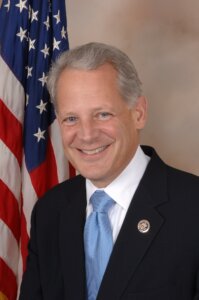Respecting Religious Diversity
Right now there are men and women sitting in Humvees in Iraq or flying missions over the mountains of Afghanistan. In matters of religion and conscience they represent great diversity, but they are bound together in their professional duty by a commitment to Constitution and country. As American servicemen and women they are willing to fight together and make the greatest sacrifices for one another. Yet for too long, the U.S. Air Force Academy in Colorado Springs, the premier training ground for future Air Force officers, allowed growing divisions along religious lines. Amid cadets’ complaints about discrimination, a report from Americans United for Separation of Church and State found a culture of official religious intolerance that was “pervasive, systematic and evident at the very highest levels of the academy’s command structure.”
This confusion of governmental power and religious belief is not simply a church-state issue. Religious bigotry in officer training becomes religious bigotry on the battlefield, creating a deadly environment of weak morale and degraded unit cohesion.
The Constitution gives Congress the responsibility to oversee the military. Therefore, Congress needs to pay particular attention to ensuring that the military is accommodating personal expressions of religion and upholding the constitutional precepts that it exists to support and defend.
As a member of Congress and a former chaplain at the Air Force Academy respectively, we support and defend the right of all people to pray, meditate and worship as they wish. The armed services must accommodate individual spiritual needs within the bounds of the military mission. But religious intolerance, coercion and bigotry are unacceptable.
A report by a team from the Yale Divinity School, authorized by the Air Force Academy, and articles in local Colorado newspapers documented numerous instances of pressure on cadets at the Air Force Academy to adopt specific religious beliefs and practices. Cadets have complained of religious bias in the granting of cadet privileges and of hazing by upper-class superiors. Cadets who declined to attend chapel were forced to march in what were called “heathen flights.” Academy leadership failed to properly attend to numerous reports of religious bias and intolerance. The most recent meeting of the academy’s Board of Visitors concluded that the academy should not be “distracted from its mission” by engaging in efforts to remedy these constitutional violations. But every member of the military takes an oath to uphold and defend the Constitution. So how does working to ensure a constitutionally appropriate environment at the academy “distract” from its mission?
Thus far, we have been very disappointed with the response from Congress. In past weeks, several amendments were offered in the House to address religious coercion in the Air Force. The debate that ensued reflected an increasingly harsh climate of intolerance and extremism — not in the Air Force Academy but in the halls of Congress. One Republican went on the floor and falsely accused Democrats of “denigrating and demonizing Christians.” Some in Congress have argued that it is the religious mission of evangelical chaplains to bring nonbelievers to their faith and thus any restrictions would deny their religious freedoms. Yet the military requires that religious freedoms be accommodated to the necessities of military mission and good order and discipline.
As an example, Lutheran beliefs confirm that genocide is wrong. But in order to fulfill her military mission, a Lutheran missile launch officer, in charge of the launch keys and codes to nuclear missiles, must personally come to some accommodation with her profoundly held religious beliefs, or salute smartly, return the keys and leave the silo. Military personnel make these difficult decisions every day.
No one seeks to deny the right of an evangelical preacher to actively seek new adherents; it can be done without restriction in any church in America. But the military is not a mission field. Proselytizing in the highly regimented military environment is inappropriate, particularly when it involves senior officers and service members. Recognizing this, the Air Force came out this week with interim guidelines forbidding the promotion of religion by officers.
Clearly, what has happened at the Air Force Academy reflects a deeper struggle that is also taking place in the halls of Congress. That is why we need a bipartisan presidential commission to fully explore how an appropriate balance can be reached in the military between the personal expression of faith and the constitutional separation of religion and state. The president and Republican and Democratic leaders of the Senate and House must appoint such a commission. This commission should include people from inside and outside of government and the military, as well as experts in pastoral care.
This is not simply a matter of religious freedom or constitutional law. Ultimately, it is about maintaining the unit cohesion necessary for military success, while accommodating the diverse spiritual values that define our nation, including the value of respecting the faiths of all people.

















